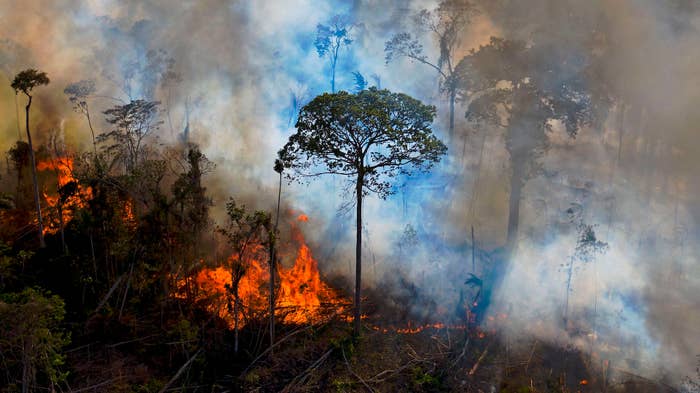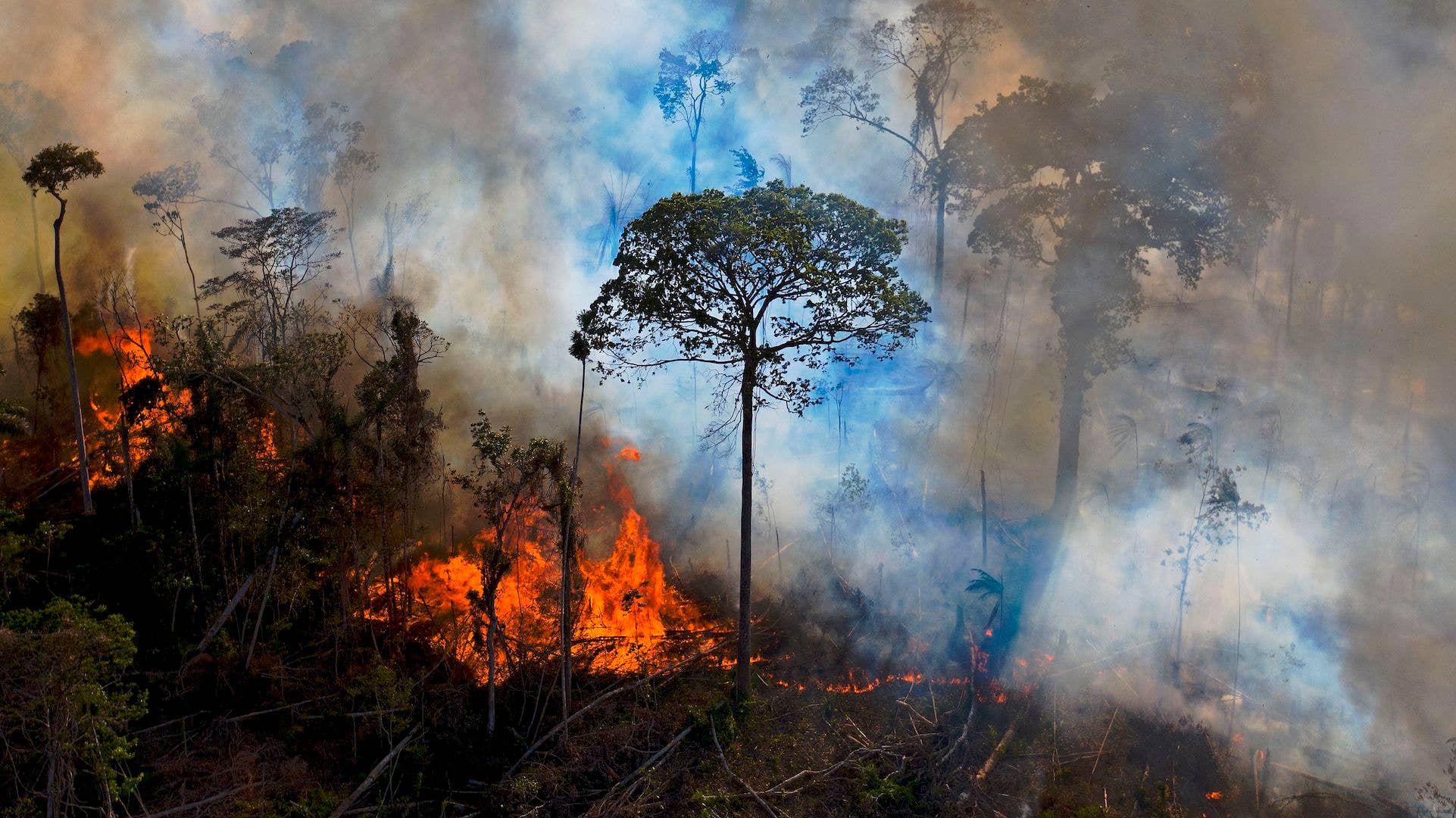
Humans have disturbed almost all of the Earth’s habitats and animal populations.
A new study from Frontier Forest and Global Change reveals that only three percent of the Earth’s land remains untouched or “ecologically intact.” Rather than just rely on satellite imagery, Andrew Plumptre—lead author of the study—and his team studied superimposed maps of human destruction of ecosystems with maps that showed where animal species had dwindled or disappeared.
“Field work by many people clearly shows there are species that have been lost from these areas of intact habitat—large and medium carnivores and large and medium herbivores in particular,” Plumptre told Gizmodo. “Some have been lost or reduced in number because of hunting by people, some lost because of the introduction of invasive species, such as cats and dogs, and some due to disease.”
The researchers measured how undamaged a habitat was using three touchstones: habitat intactness, faunal intactness, and functional intactness. “Faunal intactness was 2.9 percent of the land surface and functional intactness 2.8 percent,” Plumptre said—meaning 97 percent of terrestrial ecosystems are in trouble due to industry, hunting, invasive species, and other factors. The team discovered that the world’s intact ecosystems exist in Congo, Tanzania, the Amazon rainforest, Siberia, and southern Chile.
The authors found that one way to revert some of the damage was by reintroducing small populations of some crucial species, like large mammals. Such methods could boost the Earth’s ecological intactness by 20 percent, particularly in eastern Russia, Alaska, northern Canada, the Sahara Desert, the Amazon Rainforest, and the Congo tropical forest.
“We should also think about restoring species to regain ecological integrity across more of the Earth,” Plumptre said.

